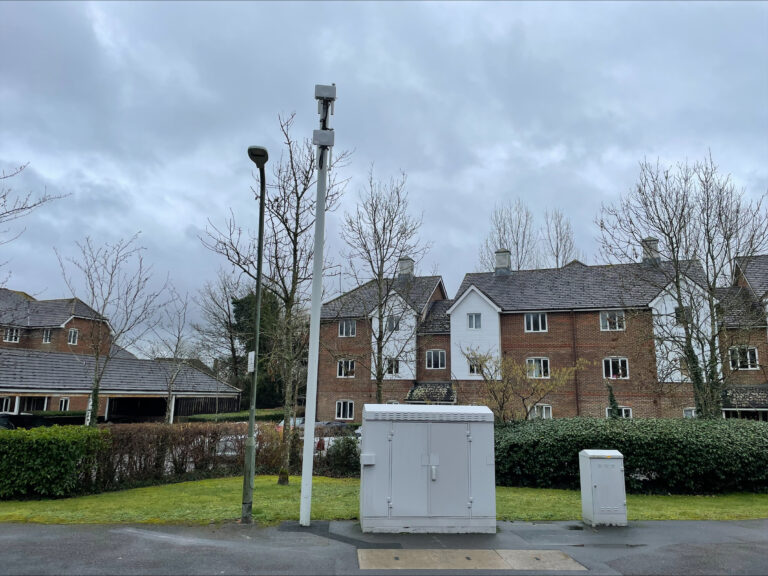New small smart poles have been trialled in the UK that could remove the need for tall mobile masts and aid cities in their smart city initiatives.
The Virgin Media O2 smart poles were installed beside the operator’s existing fibre network cabinets. The poles–smaller than traditional mobile phone masts–do not require planning permission, can be installed in less than a day and house small cell technology which can boost mobile coverage in dense areas.
“This is still very much in trial phase but with 25,000 cabinets in place across the UK, it could decrease the need for tall masts in densely populated areas in the future,” a Virgin Media O2 spokesperson told Cities Today.
Small cells housed at the top of the pole also add capacity to the local mobile network, reducing congestion. The network provider says it could pave the way for a wide scale rollout that would speed up network build, reduce costs and de-risk upgrade programmes.
Electricity is supplied by the fibre network rather than a traditional power supply. The ‘digital electricity’ technology, transmits power from on-street cabinets in the local area along fibre optic cables. The same fixed fibre network is also used to carry data to and from the mobile cells and the internet.
The company believes that smart city infrastructure, including electric vehicle (EV) chargers, can also be built into the poles providing new opportunities to further monetise its network.
“As part of the trial, the team are testing to understand how a variety of smart city infrastructure can be built into these smart poles,” the spokesperson added.
The current process of deploying mobile infrastructure can be time consuming as it typically involves obtaining planning permission for new or upgraded infrastructure, installing radio equipment, connecting sites to the power network, before establishing fibre connections to carry mobile traffic to the internet – a process known as backhaul.
By connecting new small cells to traditional fixed fibre network, costs are reduced and a separate backhaul connection or dedicated electricity supply is no longer required.
In a statement, Jeanie York, Chief Technology Officer at Virgin Media O2, said: “The ability to use our existing national fixed network to backhaul and power small cells could be transformational – helping us save time and money, open up new revenue streams, support smart city technology and fully leverage the benefits of our scaled converged network.”
Image: Virgin Media O2
